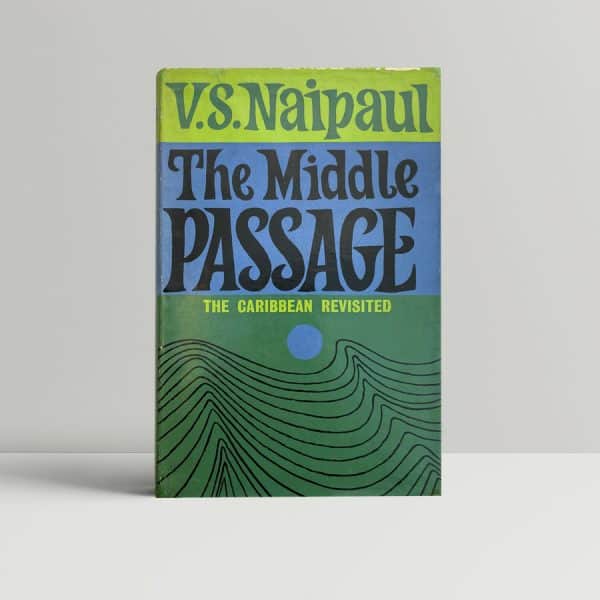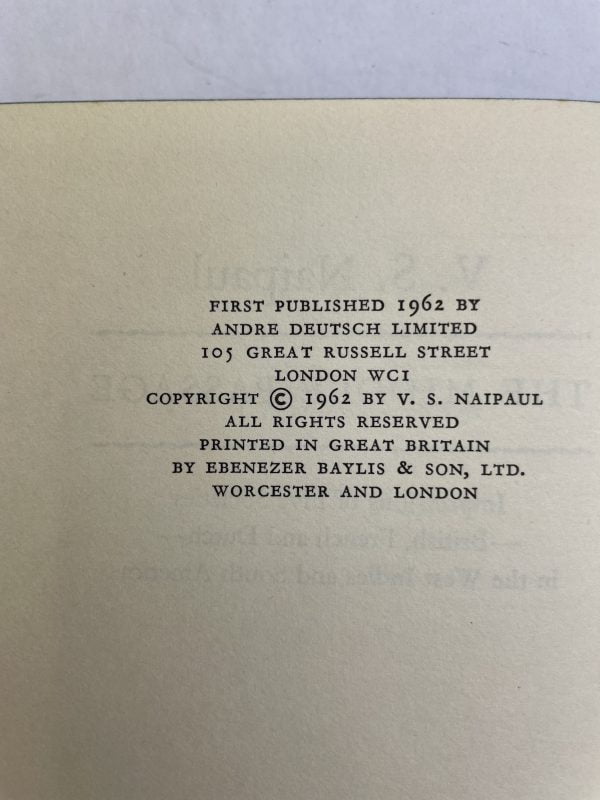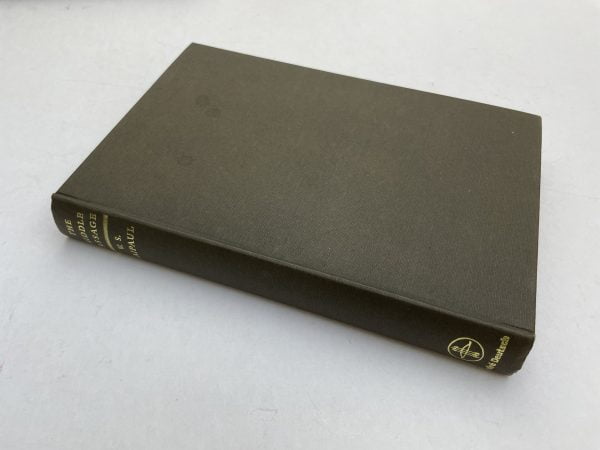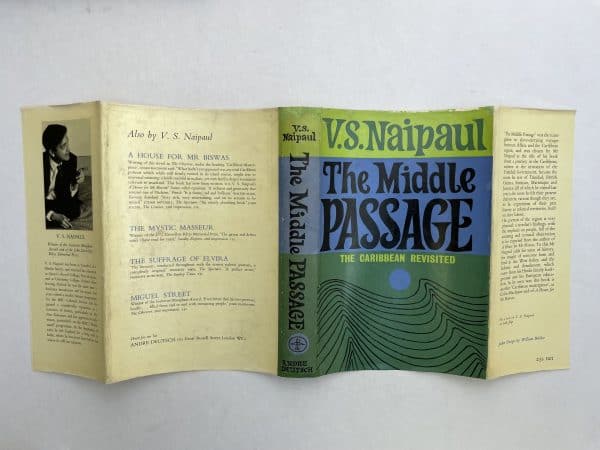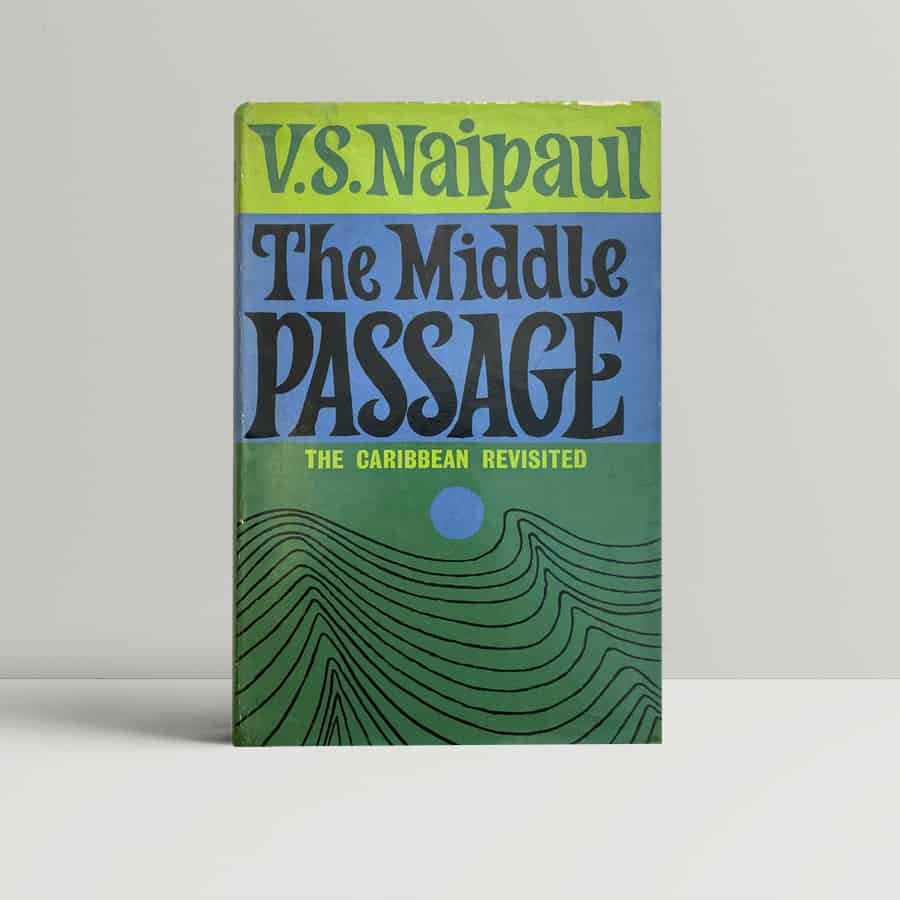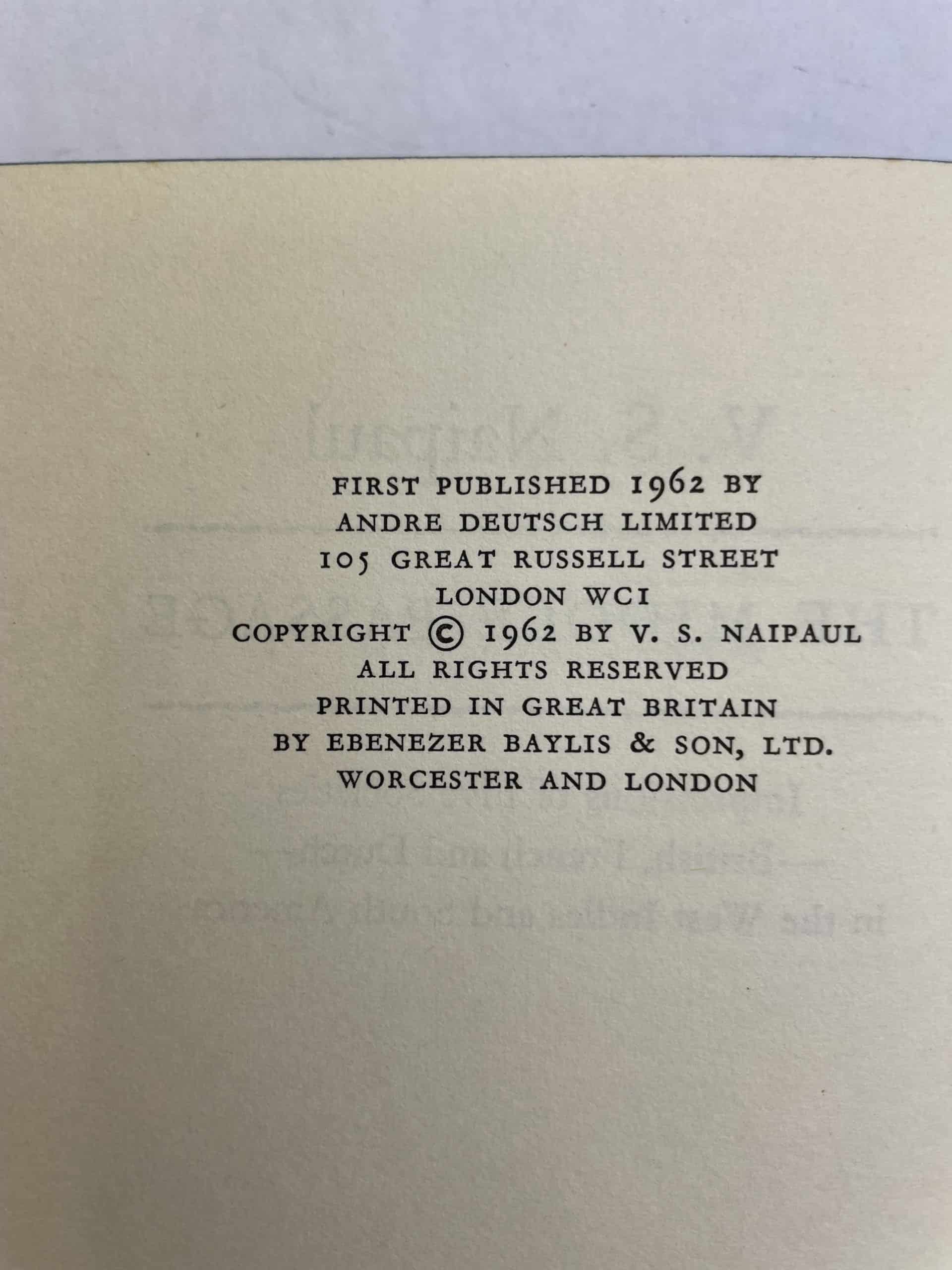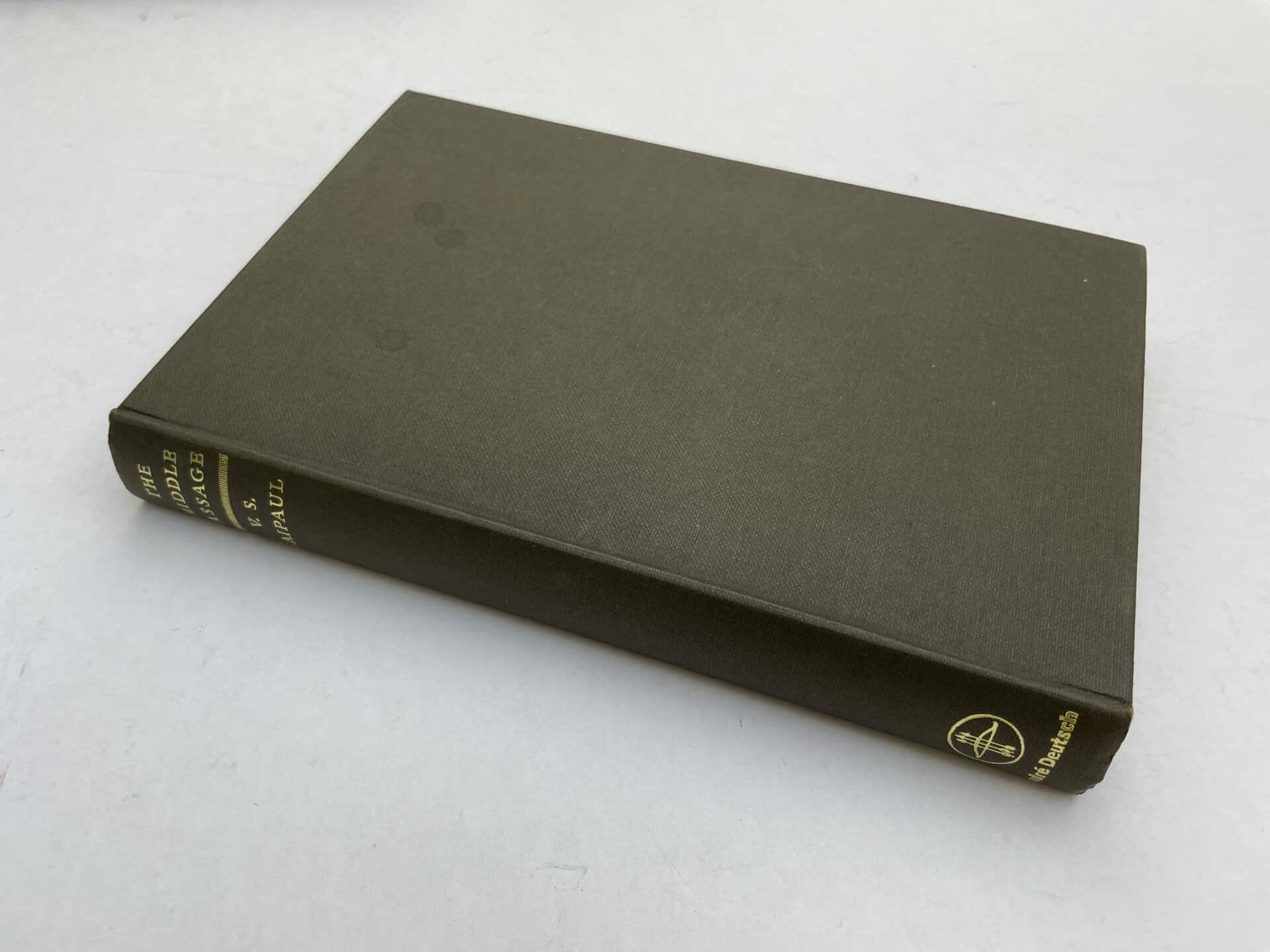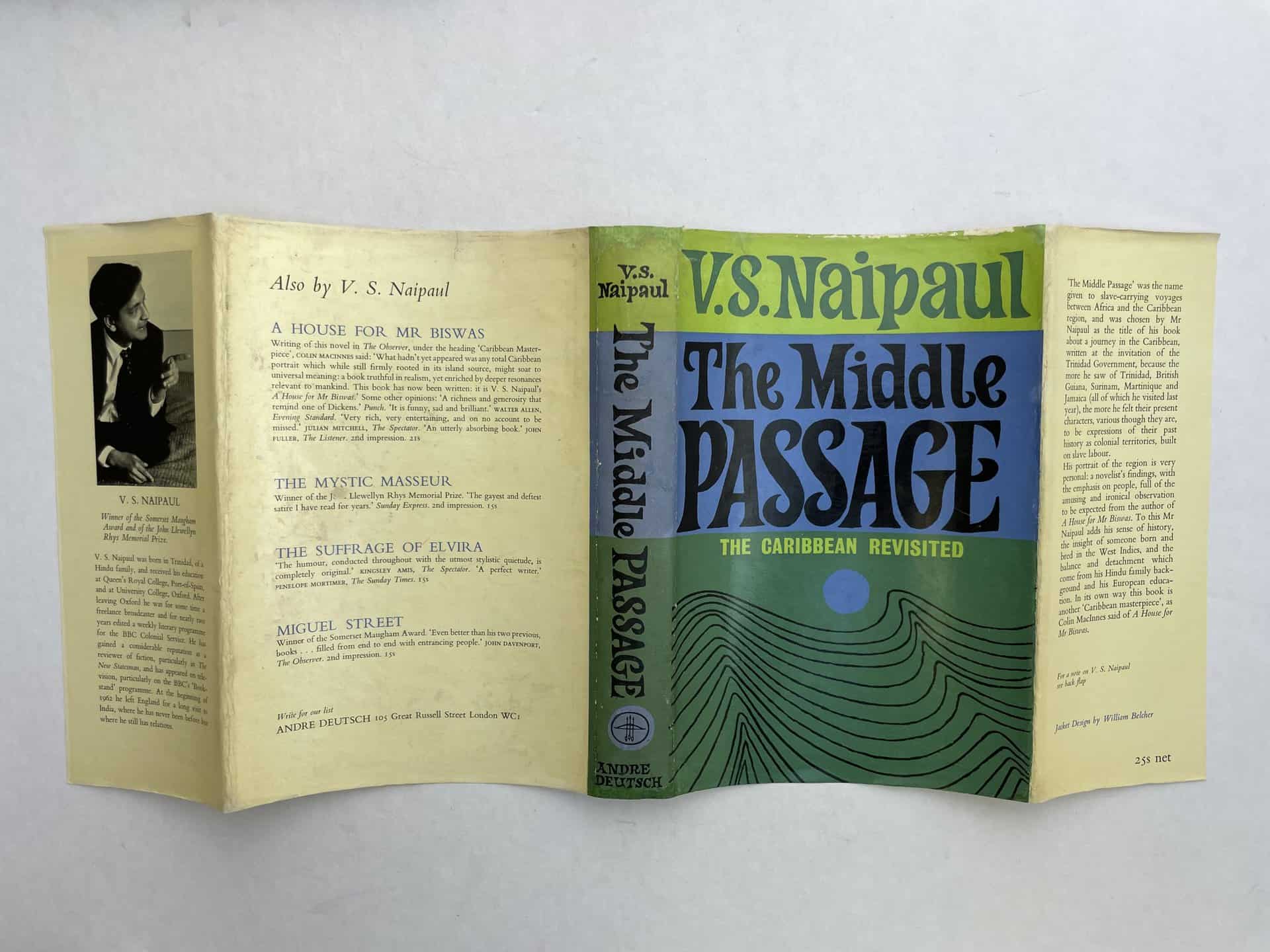We're now open Sundays from 10am - 4pm
V.S. Naipaul – The Middle Passage – First Edition 1962
£250.00
First edition, first printing. Published by Andre Deutsch in London, 1962. This is a near fine copy. Brightly designed by William Belcher, the dust wrapper has some rubbing at the edges. There are some repairs to the top and tail of the spine, pasted into the original colouring. It has not been price clipped, showing the 25s net price. The boards are sharp and tight at the spine. The text blocks are slightly foxed throughout, but otherwise bright and white. This copy is free from inscriptions and is in near fine condition.
In 1960 the government of Trinidad invited V. S. Naipaul to revisit his native country and record his impressions. In this classic of modern travel writing he has created a deft and remarkably prescient portrait of Trinidad and four adjacent Caribbean societies—countries haunted by the legacies of slavery and colonialism and so thoroughly defined by the norms of Empire that they can scarcely believe that the Empire is ending.
(We don't keep all of our stock in the shop, so send us an email if you're planning a trip to see a particular author or book.)
- Description
Description
First edition, first printing. Published by Andre Deutsch in London, 1962. This is a near fine copy. Brightly designed by William Belcher, the dust wrapper has some rubbing at the edges. There are some repairs to the top and tail of the spine, pasted into the original colouring. It has not been price clipped, showing the 25s net price. The boards are sharp and tight at the spine. The text blocks are slightly foxed throughout, but otherwise bright and white. This copy is free from inscriptions and is in near fine condition.
In 1960 the government of Trinidad invited V. S. Naipaul to revisit his native country and record his impressions. In this classic of modern travel writing he has created a deft and remarkably prescient portrait of Trinidad and four adjacent Caribbean societies—countries haunted by the legacies of slavery and colonialism and so thoroughly defined by the norms of Empire that they can scarcely believe that the Empire is ending.

